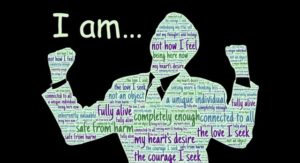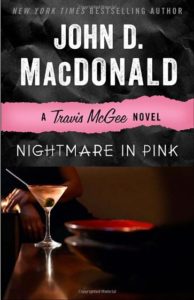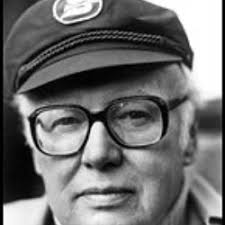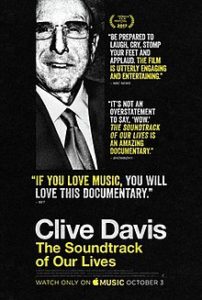What I Believe: About Identity Theory
A Problem No One Seems to Have Noticed

Modern Identity Theory allows for the idea that gender identity is a “social construct,” and, as a social construct, it can be changed. A man that “identifies” as a woman has the right to be identified as a woman – by colleagues, friends, and even family.
In another essay, I will consider gender specifically. Today, I want to examine this idea of the social construct more generally. Can we change our identities? And, if so, under what circumstances?
You make a living as a machinist. You spend your evenings at a local bar, telling people you meet that you are a writer. You say you are a writer because you really want to be a writer. And you believe, deep down, that you are.
But the fact is – and this is something your parents, your friends, and even the bartender know – you are not a writer. You are a machinist that wants to believe he’s a writer. And believes that if he can get other people to see him as a writer, he’ll be one.
Reductio ad absurdum: You wake up early one morning feeling like a rooster. You get out of bed, strut rooster-like around the room, stick your head out the window and crow. You feel 100% rooster. Alas, you are not a rooster. You are a Homo sapiens with a mental illness.
I always wished that I were several inches taller. If I could become six foot two by feeling like I was six foot two, I’d do that. The objective and verifiable fact of the matter, however, is that I am five foot ten, and have been five foot ten my entire adult life. My mental health and the mental health of those around me will be much better if I don’t insist that I am six foot two.
You know where I’m going with this. And I’ll get to the gender debate next time. Today, I want to make an obvious point that I’ve not heard made.
It is this: Identities are not – and cannot possibly be – internally determined. They are not, therefore, and cannot be, subjective. That’s because the very concept of identification is external. Identification is about defining and classifying things that are outside of oneself. And there is a good and reputable scientific field of study that does that. It is called taxonomy. It works by describing and classifying the objectively categorical features of things.
In other words, identity, by definition, is that which can be described and categorized by objective measurements. Take away the objective perspective and the meaning of the word is gone.
Feeling like you are something doesn’t make you that something, because feeling is subjective and taxonomy is objective. If you want to be something other than what you are, you have to acquire the taxonomic characteristics of the thing you want to be.
This is not to deny the fluidity of human emotions. Or our inalienable right to have the emotions we want to have.
A machinist is not wrong to feel like he is meant to be a writer. And if he wants to spend his spare time deceiving himself about his actual identity, that’s his right. But he should not expect that others (people outside his internal reality) will consider him to be or treat him as a writer.
If you want to identify as a writer, all you need to do is spend most of your work time writing. If you want to identify as a rooster, see a therapist.
worth reading

Nightmare in Pink
By John D. MacDonald
143 pages
First published in 1964 by Fawcett
What could be better when a flu or virus is keeping you in bed for the weekend than two days with Travis McGee?
Nightmare in Pink is only the second novel I’ve read by John D. MacDonald. It confirmed the positive feeling I had from my first encounter with this very gifted novelist. I intend to read more of this series.
The Plot
As a favor to Mike Gibson, an old war buddy, Travis agrees to help Mike’s sister, Nina, recover some money she’s owed. This leads him into a sinister conspiracy of theft, kidnapping, and mind-altering drugging.
What I Liked About It
* MacDonald is a very good writer. In terms of diction, dialog, and style, he’s right up there with other masters of the hard-boiled fiction genre, such as Dashiell Hammett and Raymond Chandler.
* Travis McGee isn’t your typical detective hero. Unlike Chandler’s Philip Marlowe, for example, he’s vain and opportunistic and clumsy – in a way that is commonplace now, but was unusual in the sixties and seventies when he was writing.
* McGee’s perspective on the world is scrumptiously bleak and sarcastic. Example:
“New York is where it is going to begin, I think. You can see it coming. The insect experts have learned how it works with locusts. Until the locust population reaches a certain density they all act like any grasshoppers. When the critical point is reached, they turn savage and swarm, and try to eat the world. We’re nearing the critical point. One day soon two strangers will bump into each other at high noon in the middle of New York. But this time they won’t snarl and go on. They will stop and stare and then leap at each other’s throats in a dreadful silence. The infection will spread outward from that point.”

John Dann MacDonald (July 24, 1916 – December 28, 1986)
MacDonald was a prolific author of crime and suspense novels, many set in his adopted home of Florida. One of the most successful American novelists of his time, he sold an estimated 70 million books.
Several of his books were made into movies. The best known are The Executioners (1957) and Cape Fear ((1962 and 1991).
Critical Reception
* In 1972, the Mystery Writers of America bestowed upon MacDonald its highest honor, the Grand Master Award for lifetime achievement and consistent quality.
* Stephen King praised MacDonald as “the great entertainer of our age, and a mesmerizing storyteller.”
* Kingsley Amis said MacDonald “is by any standards a better writer than Saul Bellow, only MacDonald writes thrillers and Bellow is a human-heart chap, so guess who wears the top-grade laurels.”
worth watching

Clive Davis: The Soundtrack of Our Lives
Released in 2017
Directed by Chris Perkel
Available on various streaming services
Clive Davis: The Soundtrack of Our Lives is a documentary about the career of American record executive Clive Davis. It was based in his autobiography, The Soundtrack of My Life, published in 2013.
I came across the film when I was looking for another one, something recommended by a friend. On an impulse, I clicked on it to see who this Clive Davis was. It turns out he’s a well-known music industry executive that has been producing major talent for more than 50 years.
What I Liked About It
* His story.
* The story of his era in music.
* The many artists depicted.
The number of great artists Davis discovered/put on the map is amazing. An abbreviated list:
Janis Joplin
Paul Simon
Patti Smith
Kenny G
Bruce Springsteen
Carlos Santana
Whitney Huston
Aretha Franklin
The Grateful Dead
Toni Braxton
Billy Joel
The Notorious BIG
Usher
Alicia Keys
What I Didn’t Like So Much
The movie is hardly an in-depth or critical view of the man himself. It is a tribute, bordering on a puff piece. I would have liked to have been shown more about the slings and arrows of his fortune.
Critical Reception
* “An eye-opening, not to mention ear-opening, experience.” (Michael Rechtshaffen, LA Times)
* “We get the saga of a tender musical fairy godfather [but] you won’t learn much about Davis’s personal story.” (Variety)
* “It’s an extraordinary two-hour tale of a man with great ears and a passion to match.” (The Arts Desk)
* A “prolonged tribute reel with ample material to fuel a dozen lifetime achievement award ceremonies” and the film’s “hagiographic tone only worsens once Davis himself takes centerstage as the chief interview subject.” (IndieWire)
You can watch the trailer here.
